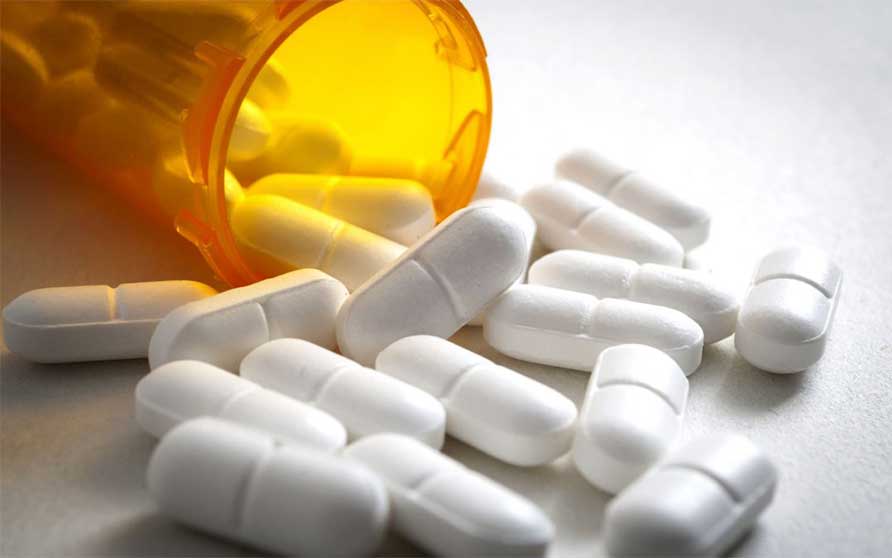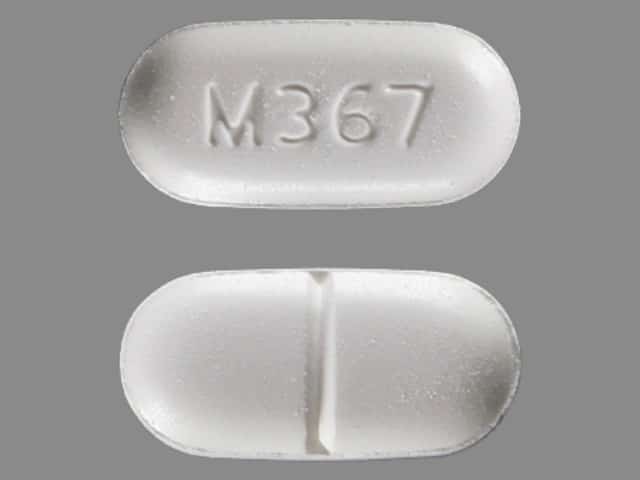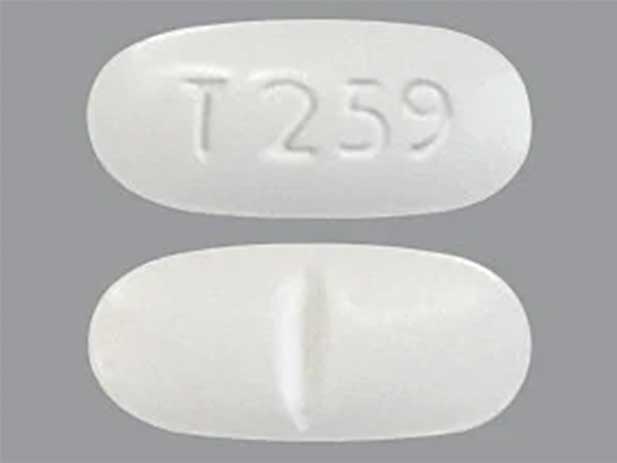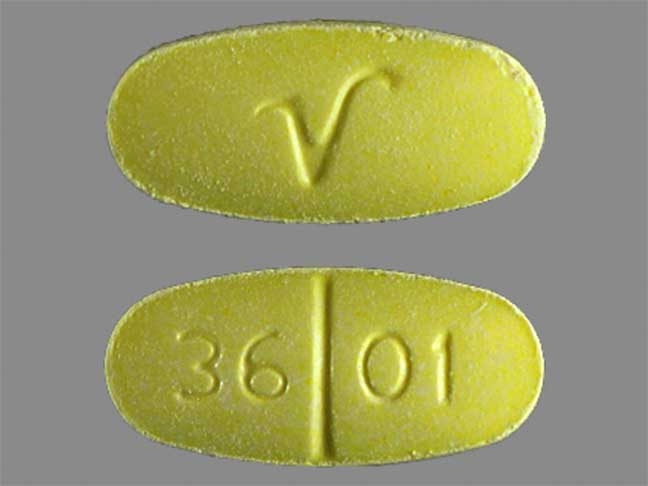What Does Vicodin Look Like?

Medically Reviewed By: Manish Mishra, MBBS

Written by: Fikret Terzic MD, MS
Vicodin pills are generally white in color and oblong or oval shaped. The strength and the imprint on each pill differ based on the manufacturer and dosage.

Vicodin is the brand name for the combination drug that consists of the prescription opioid analgesic hydrocodone and the pain reliever and fever reducer acetaminophen. It’s typically used to treat moderate to severe pain, and can also be found as Norco and Lortab.
Vicodin is addictive and sometimes sold on the streets. When this occurs, it can be difficult to know whether what you’re getting is real or if it contains fentanyl. The only way to know for sure is to get a prescription from your healthcare provider.
What Vicodin Looks Like
There are three types of Vicodin formulations: Vicodin, Vicodin ES (extra-strength), and Vicodin HP, which has hydrocodone bitartrate. Beyond the formulations, Vicodin also comes in different shapes, colors, and dosages.
White Vicodin
Vicodin primarily comes as a white tablet that is oval, oblong, or capsule-shaped. The strength and the imprint of each pill differs.
The dosage and strength of Vicodin tablets include:
- 500 mg of acetaminophen and 5 mg of hydrocodone
- 300 mg of acetaminophen and 5 mg of hydrocodone
- 300 mg of acetaminophen and 10 mg of hydrocodone bitartrate
- 750 mg of acetaminophen and 7.5 mg of hydrocodone
- 325 mg of acetaminophen and 10 mg of hydrocodone bitartrate
- 300 mg of acetaminophen and 7.5 mg of hydrocodone.
The imprints on these pills may include:
- VICODIN
- VICODIN 5 300
- VICODIN ES
- VICODIN ES 7.5 300
- VICODIN HP
- VICODIN HP 10 300
- M367
- G 037
- T 259


Yellow Vicodin
There is also a yellow oblong Vicodin tablet that consists of 10 mg of hydrocodone bitartrate and 325 mg of acetaminophen. The imprint on this tablet reads “36 01 V.”

Side Effects Of Vicodin
Vicodin works by binding to opioid receptors in the central nervous system and blocking pain signals. It also causes the brain to release dopamine which is what leads to pain relief, euphoria, and relaxation that makes the drug so addictive. But the drug also leads to numerous side effects.
The most common side effects of Vicodin may include:
- drowsiness
- dizziness
- nausea and vomiting
- constipation
- lightheadedness
- anxiety
- dry throat
- difficulty urinating
- rash
- itching
- narrowing of the pupils
Vicodin is also classified as a Schedule II controlled substance by the Food and Drug Administration (FDA). This means that it has a high potential for abuse and can lead to psychological and physical dependence and substance use disorder/Vicodin addiction.
If dependence has developed, you may experience Vicodin withdrawal symptoms, such as intense cravings and insomnia, when you stop use.
Vicodin Overdose
Overdosing on Vicodin is a risk when abusing the painkiller, taking it in high doses, or mixing it with alcohol or other drugs. In Ohio in 2020, there were 415 unintentional opioid overdose deaths in that year alone.
If you’re worried that you or someone you love are experiencing an opioid overdose, there are some signs and symptoms you can look out for:
- extreme sedation
- shallow breathing
- bluish skin
- slowed heart rate
- loss of consciousness
- confusion
- narrowed or widened pupils
- slowed heartbeat
- cold, clammy skin
- seizures
If you think you or a loved one overdosed on opioids, call for emergency medical help and administer naloxone (Narcan) if you know how. Naloxone reduces the effects of overdose and can save lives.
Vicodin Drug Interactions
Some prescription drugs and supplements negatively interact with Vicodin. Mixing certain medications with Vicodin can lead to adverse side effects and increase the risk of overdose.
Some of the drugs that shouldn’t be taken with Vicodin include:
- over-the-counter supplements
- antihistamines
- antipsychotics/medication for mental health disorders
- cyclobenzaprine
- lithium (Lithobid)
- other opioids like codeine, oxycodone,
- medications for irritable bowel disease, seizures, or urinary problems
- medications for migraines like almotriptan (Axert) and rizatriptan (Maxalt)
- selective serotonin reuptake inhibitors (SSRIs) like citalopram (Celexa) and sertraline (Zoloft)
- serotonin-norepinephrine reuptake inhibitors (SNRIs) like duloxetine (Cymbalta) and venlafaxine (Effexor)
- tramadol
- trazodone
- monoamine oxidase inhibitors (MAOIs) like linezolid (Zyvox), methylene blue, and rasagiline (Azilect)
Contraindications
There are also several medical conditions that Vicodin can actually make worse. If you have any of the following health issues, Vicodin may not be right for you:
- paralytic ileus
- difficulty urinating
- seizures
- liver damage or liver disease
- thyroid disease
- intestinal disease
- pancreas disease
- gallbladder disease
- kidney disease
If you or a loved one live with opioid addiction, Ohio Recovery Center offers inpatient treatment options that include detox, medication-assisted treatment, and aftercare support.
For more information on our substance abuse treatment programs, please call our helpline today.
- GoodRx — Norco (hydrocodone / acetaminophen) https://www.goodrx.com/norco/what-is#images
- National Library of Medicine: MedlinePlus — Hydrocodone Combination Products https://medlineplus.gov/druginfo/meds/a601006.html

